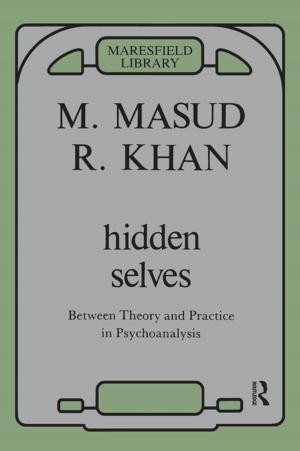| Author: | Darren R Mansfield, Nick Antic, Shantha Rajaratnam, Matthew Naughton | ISBN: | 9780995388710 |
| Publisher: | IP Communications | Publication: | May 15, 2017 |
| Imprint: | Language: | English |
| Author: | Darren R Mansfield, Nick Antic, Shantha Rajaratnam, Matthew Naughton |
| ISBN: | 9780995388710 |
| Publisher: | IP Communications |
| Publication: | May 15, 2017 |
| Imprint: | |
| Language: | English |
Sleep is an activity that is exhibited by virtually all animal species, but our understanding of its true function remains unclear. What is better understood are the effects on a range of human and animal biological systems when sleep is degraded or curtailed. These effects are observed in the form of sleep loss and sleep disorders.
This textbook describes the basic physiology of sleep and the range of sleep disorders and their consequences. Importantly, an overview of the impact of sleep and its disorders on human functioning across organs, systems, and physiological states is provided. These often prove to be bi-directional interactions that obscure direct cause and effect relationships and challenge our ability to understand the consequences of sleep decrements. Despite an explosion of knowledge and emerging respect for the importance of sleep to human health, much remains to be understood about it and the full effects of its derangements.
Although much of the material presented is internationally applicable, the book is written from an Australasian perspective. Over the last thirty years in particular, significant contributions to sleep medicine have come from Australia and New Zealand; achievements from these countries in physiology, clinical research, and biotechnology, feature prominently. Public health and community prevalence of sleep disorders similarly focus on Australasia, with relevant comparisons to the international setting.
Those seeking a broad understanding of sleep medicine - emerging sleep clinicians, tertiary students in health sciences and psychology - will find the book invaluable. Chapters convey essential concepts and principles without exhaustive detail. Where appropriate, further reading is referenced. In several chapters, an expert overview is provided of more complex areas – neurobiology of sleep, genetics, functions of sleep, and disorders of breathing during sleep – that will challenge those already proficient in sleep medicine.
Sleep is an activity that is exhibited by virtually all animal species, but our understanding of its true function remains unclear. What is better understood are the effects on a range of human and animal biological systems when sleep is degraded or curtailed. These effects are observed in the form of sleep loss and sleep disorders.
This textbook describes the basic physiology of sleep and the range of sleep disorders and their consequences. Importantly, an overview of the impact of sleep and its disorders on human functioning across organs, systems, and physiological states is provided. These often prove to be bi-directional interactions that obscure direct cause and effect relationships and challenge our ability to understand the consequences of sleep decrements. Despite an explosion of knowledge and emerging respect for the importance of sleep to human health, much remains to be understood about it and the full effects of its derangements.
Although much of the material presented is internationally applicable, the book is written from an Australasian perspective. Over the last thirty years in particular, significant contributions to sleep medicine have come from Australia and New Zealand; achievements from these countries in physiology, clinical research, and biotechnology, feature prominently. Public health and community prevalence of sleep disorders similarly focus on Australasia, with relevant comparisons to the international setting.
Those seeking a broad understanding of sleep medicine - emerging sleep clinicians, tertiary students in health sciences and psychology - will find the book invaluable. Chapters convey essential concepts and principles without exhaustive detail. Where appropriate, further reading is referenced. In several chapters, an expert overview is provided of more complex areas – neurobiology of sleep, genetics, functions of sleep, and disorders of breathing during sleep – that will challenge those already proficient in sleep medicine.















